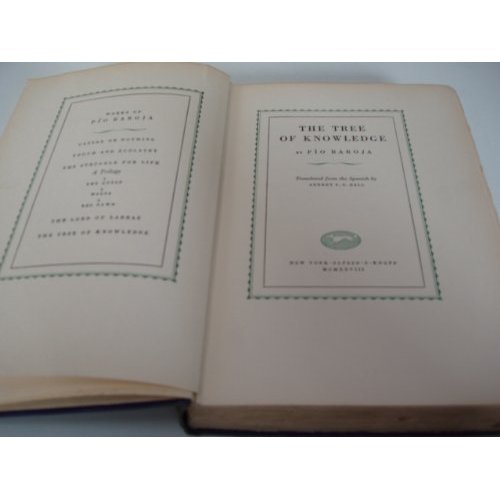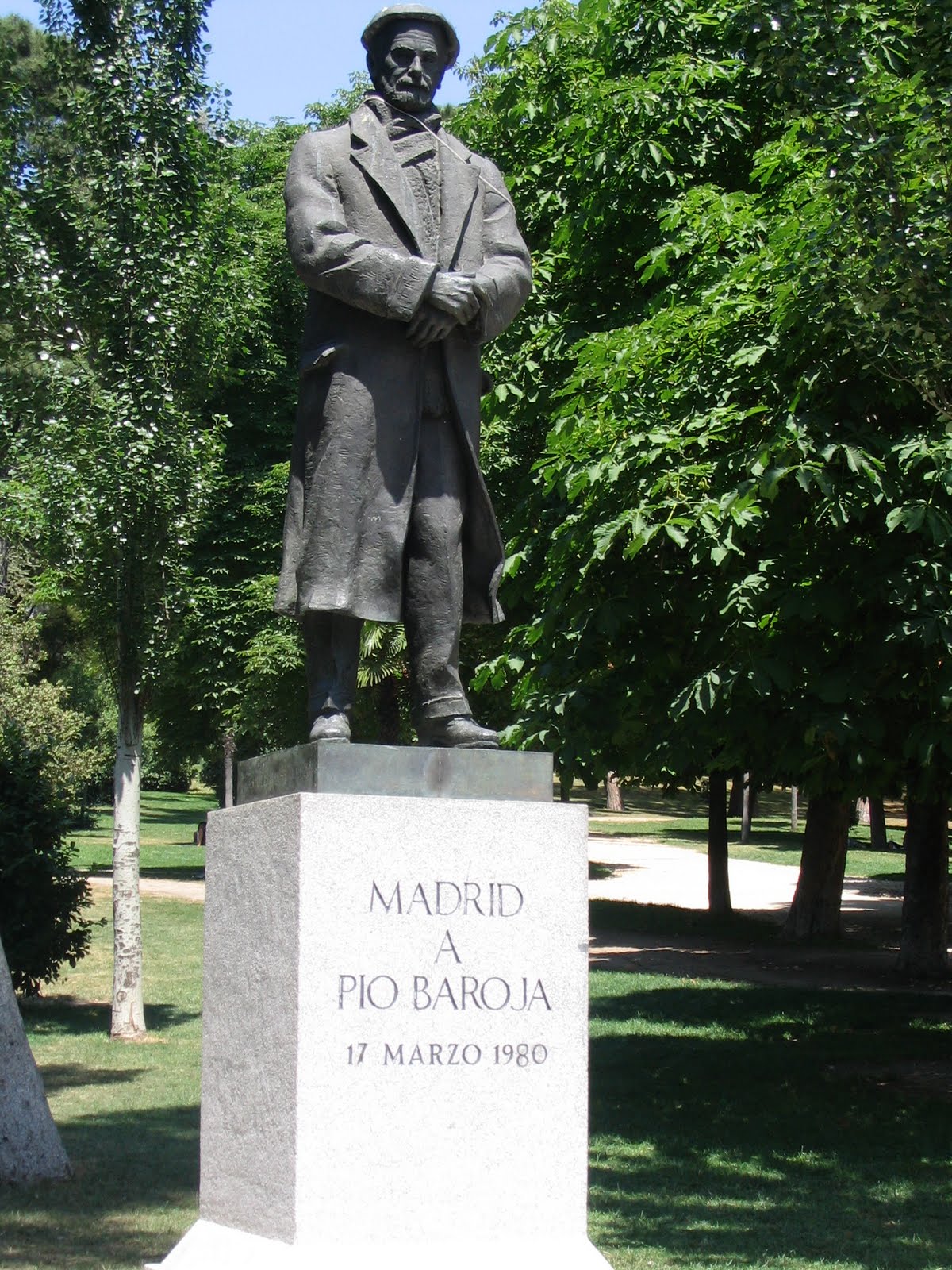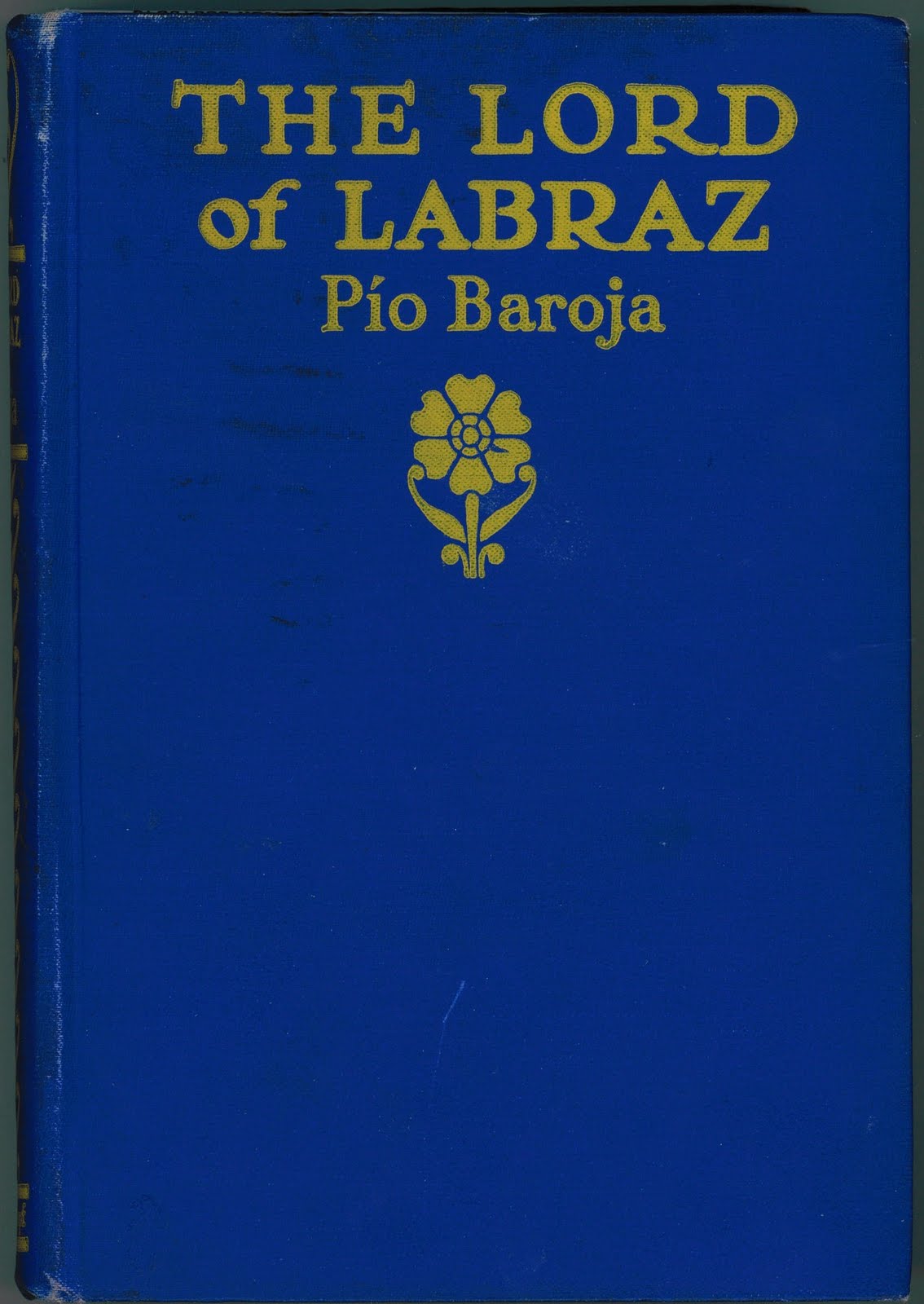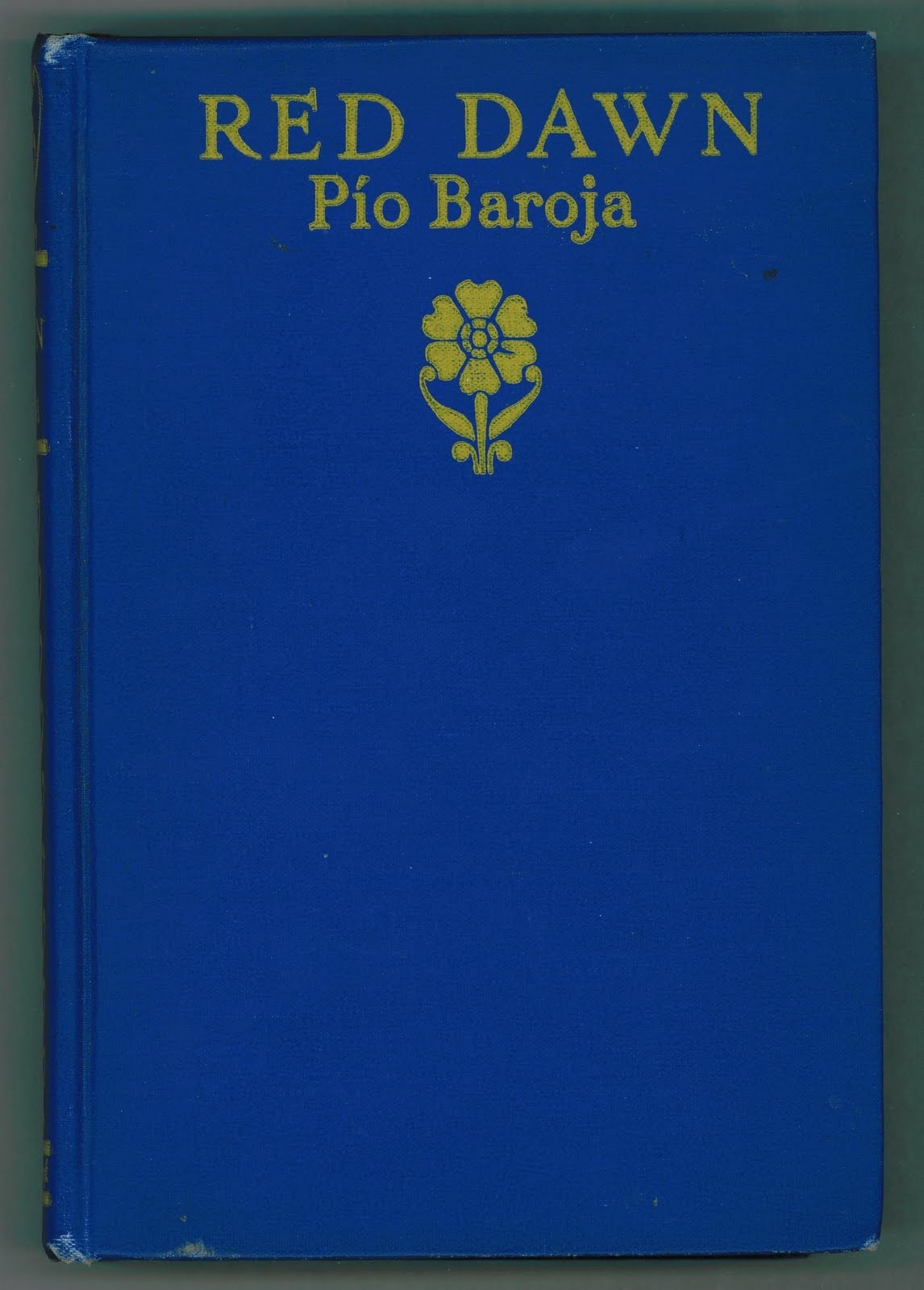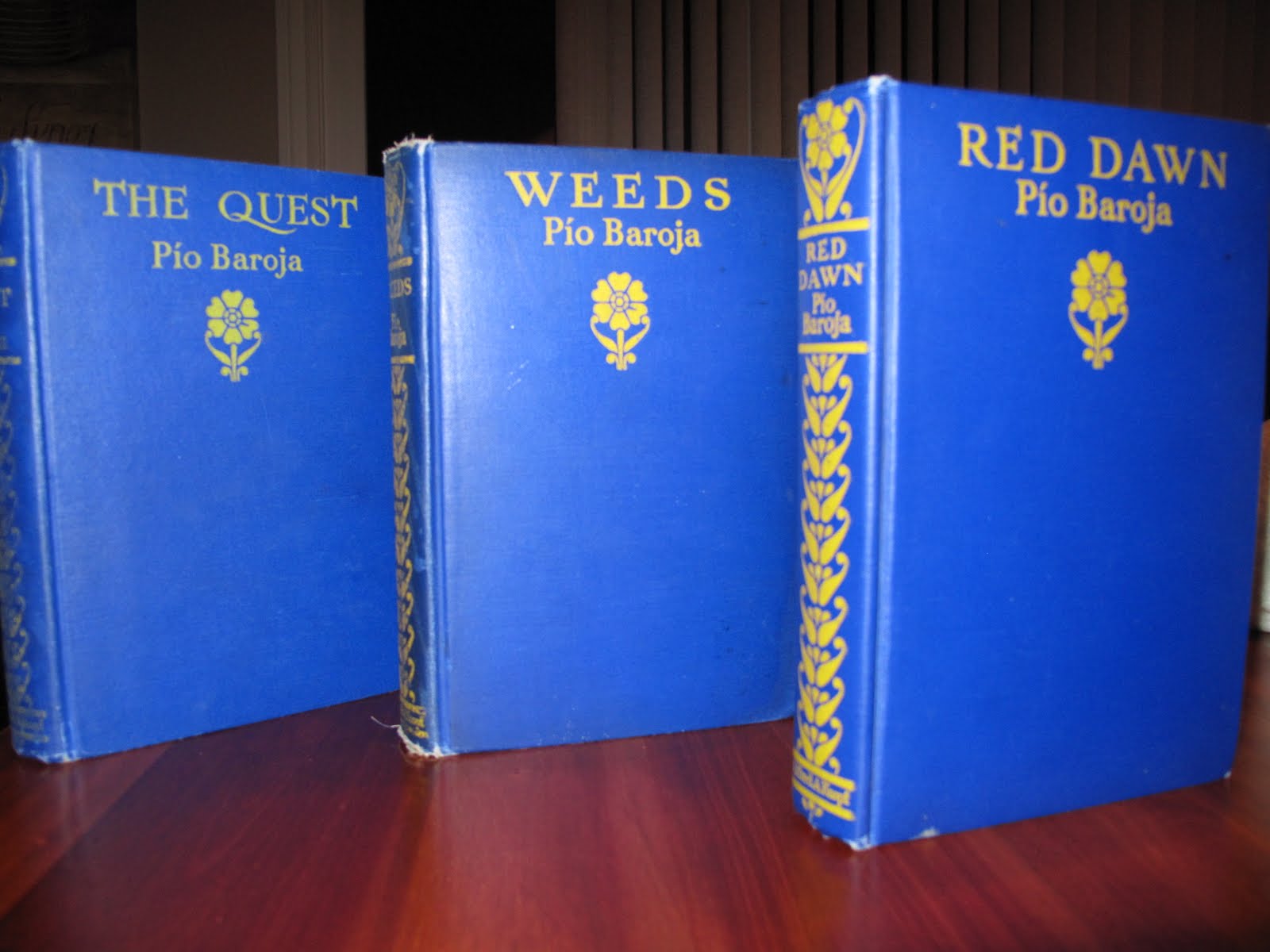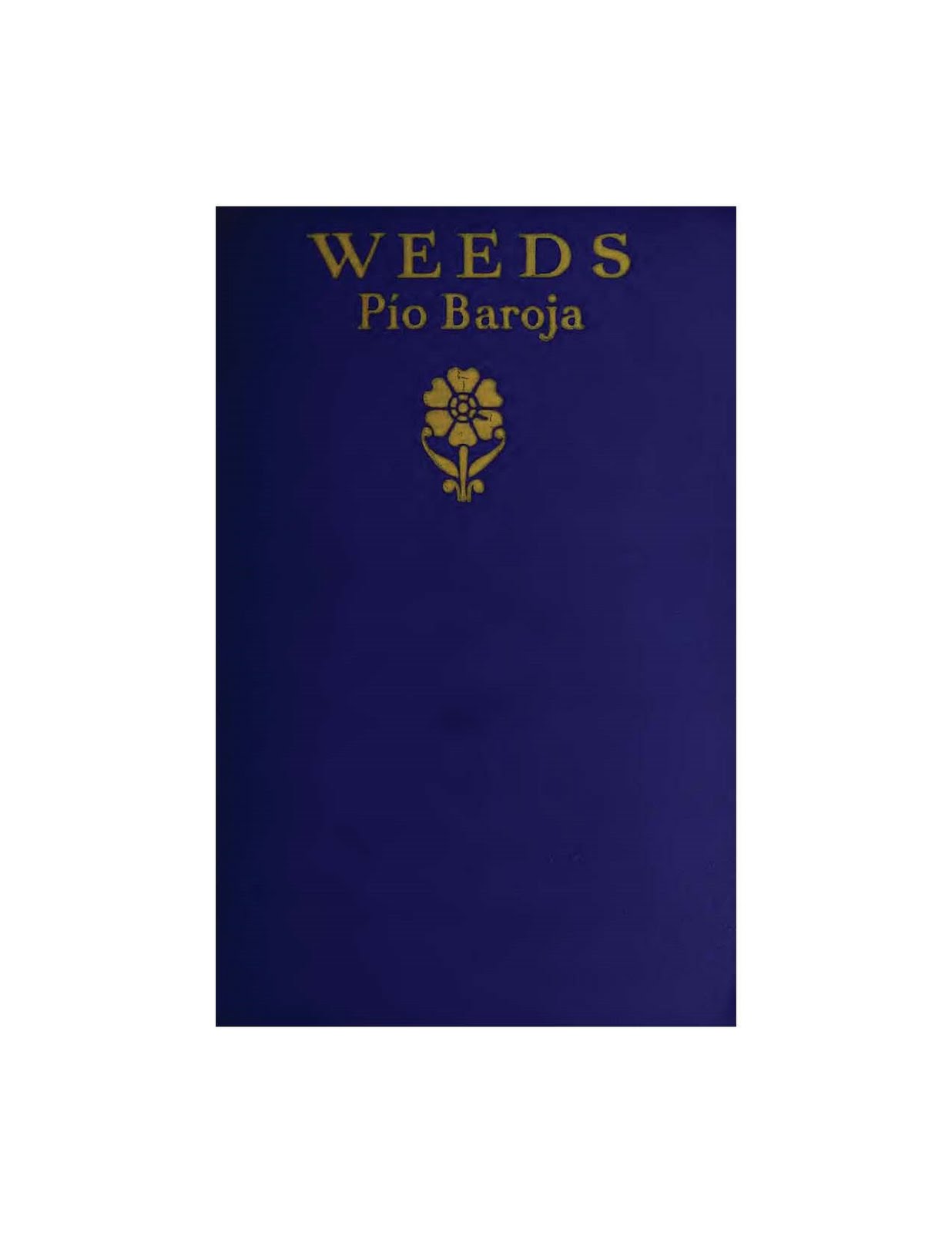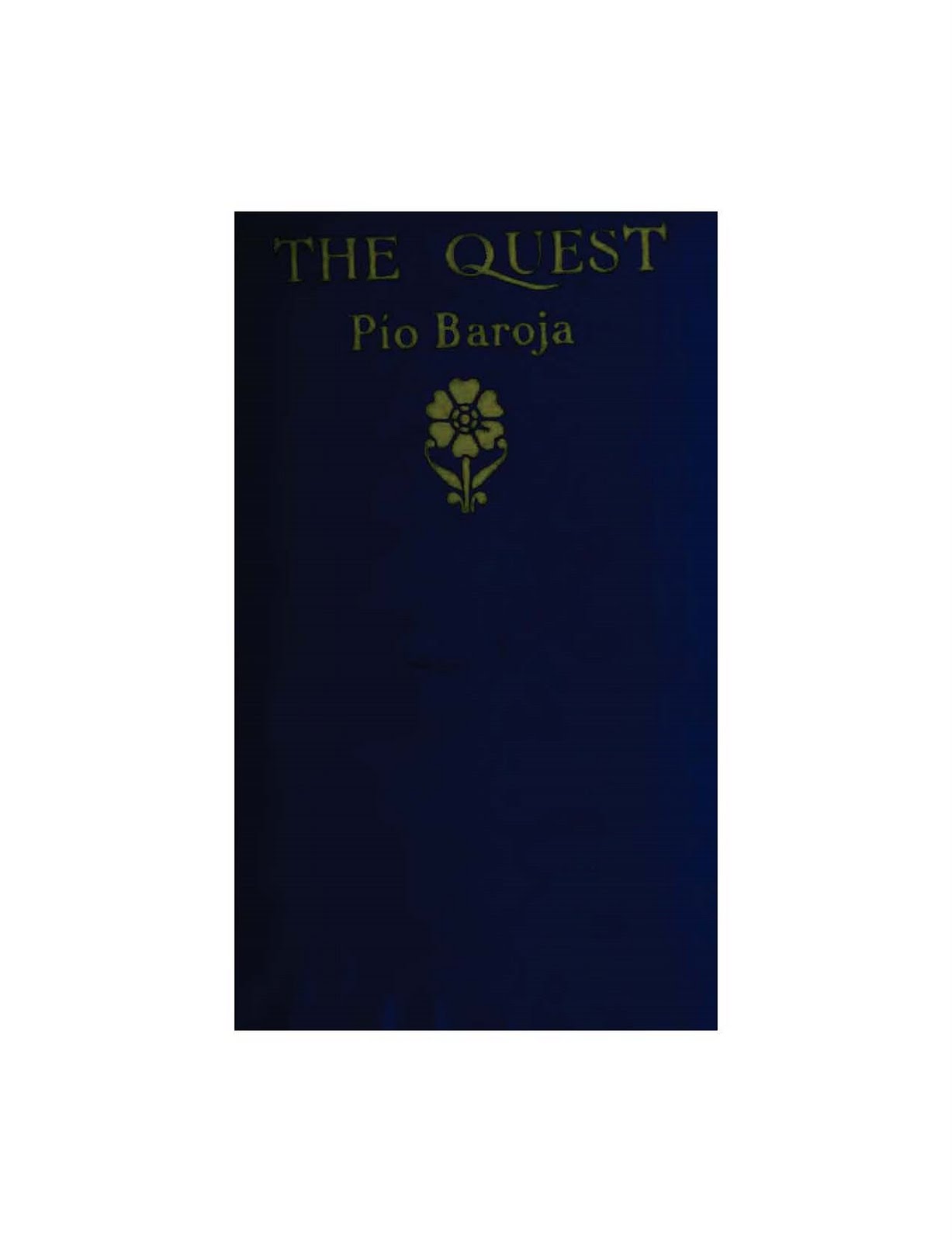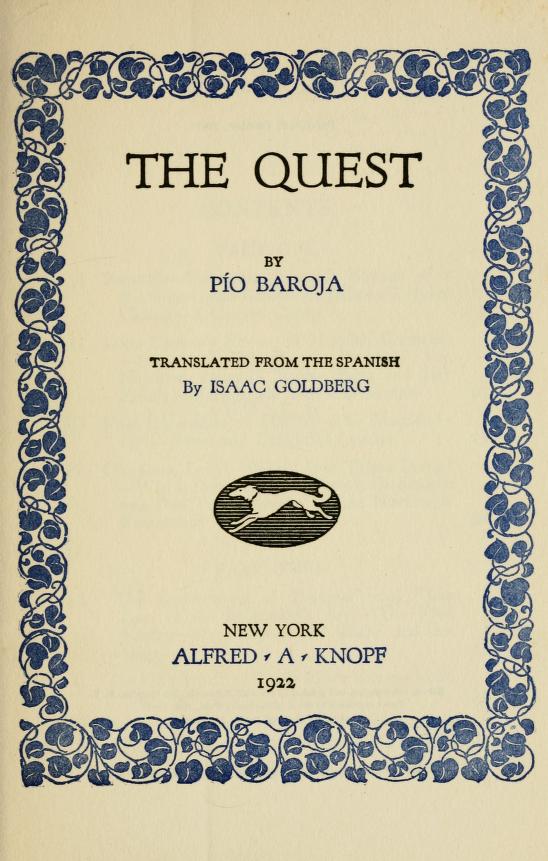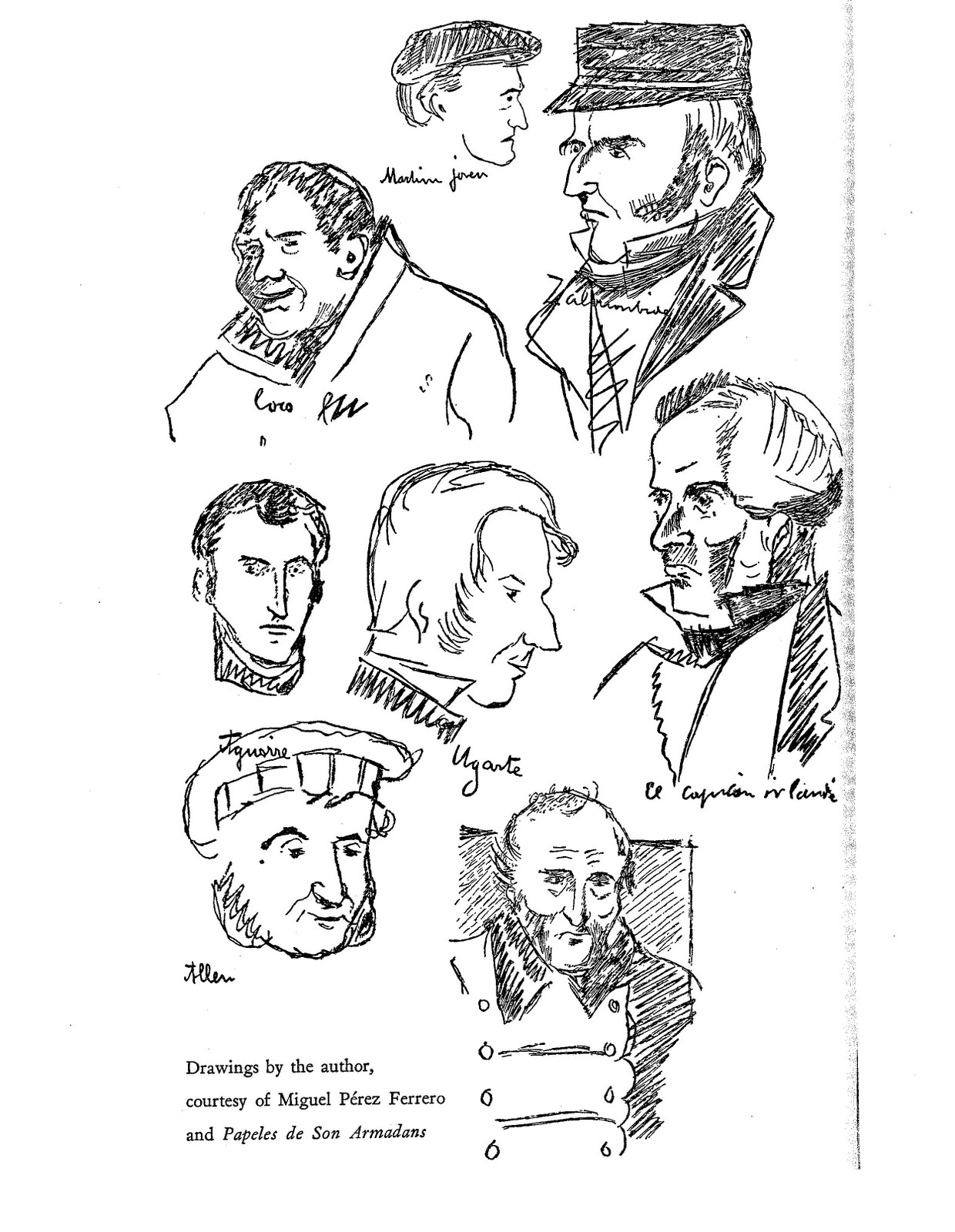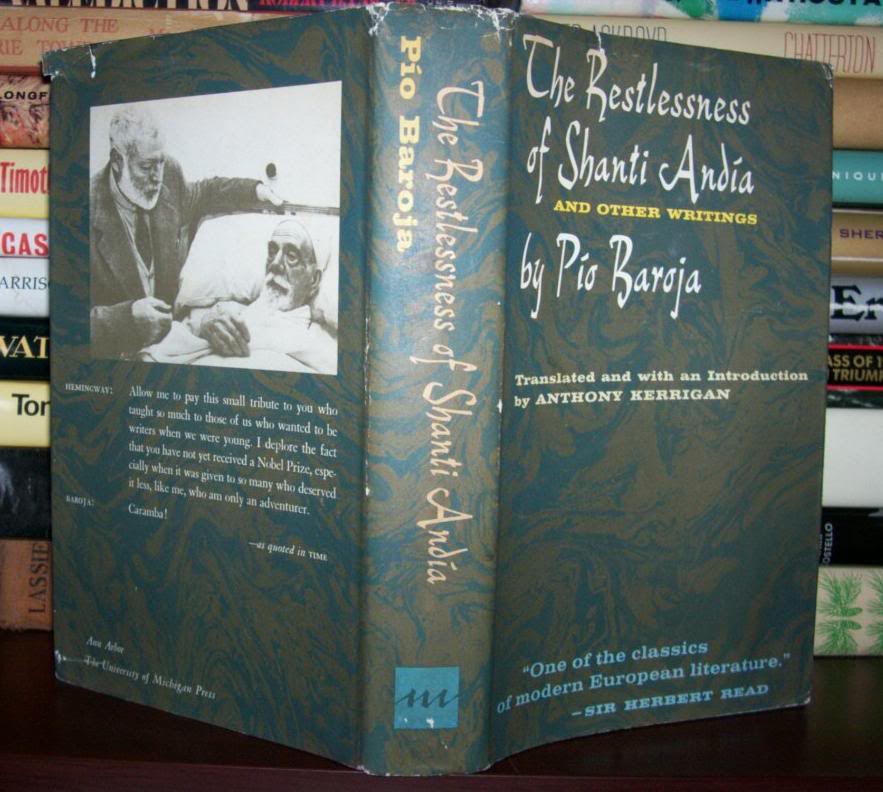Title page of The Tree of Knowledge by Pio Baroja, translated by Aubrey F. G. Bell (Alfred A. Knopf, 1928)Posts on the novel: (Part 1) The nose of a cockatoo and more years than the oldest of parrots (Parts 2 – 3) Charity seemed to have fled from the world (Part 4) Interlude (Parts 5 […]
Tag: Pío Baroja
This post follows the final three parts of The Tree of Knowledge: Part Five (“A Provincial Experiment”), Part Six (”Experiences at Madrid”), and Part Seven (“A Son”). All quotes from the text use The Tree of Knowledge by Pio Baroja, translated by Aubrey F. G. Bell (Alfred A. Knopf, 1928). I’ll copy the summary of […]
Baroja abruptly halts the storyline at Part Four (“Inquiries”) in order to have a brief philosophical interlude. Andrés Hurtado and his uncle Iturrioz discuss different approaches on how to view life. All quotes are from The Tree of Knowledge by Pio Baroja, translated by Aubrey F. G. Bell (Alfred A. Knopf, 1928). To date, Andrés […]
Parts Two (“The Minglanillas”) and Three (“Sadness and Sorrow”) round out the medical student days of Andrés Hurtado. We follow him through his fourth and final year at medical school, his first (temporary) position in the country, and the care and death of his younger brother. All quotes are from The Tree of Knowledge by […]
Bronze statue of Pío Baroja (1872–1956) Picture source In looking at my sidebar on books I have reviewed, I see a disproportionate number by Pío Baroja and this post begins another book by him. Part of the reason has to do with limited information in English on Baroja and I have wanted to find out […]
The Lord of Labraz by Pío Baroja, translated by Aubrey F. G. Bell, Alfred A. Knopf, 1926 (originally released in 1903 in Spanish)I mentioned in an earlier post that decay was a central theme in this book. Labraz, an imaginary town set in the Cantabria region of Spain, fought progress tooth and nail and won […]
The Lord of Labraz by Pío Baroja, translated by Aubrey F. G. Bell, Alfred A. Knopf, 1926 (originally released in 1903 in Spanish) Labraz is a much simpler story than his Struggle for Life trilogy but that doesn’t make it less pleasurable to read. Structured (so far) like a romance, it’s fun to watch him […]
The Lord of Labraz by Pío Baroja, translated by Aubrey F. G. Bell, Alfred A. Knopf, 1926 (originally released in 1903 in Spanish) From TIME.com’s August 30, 1926 book reviews: The Spanish hail Señor Baroja as their most popular living talespinner. He writes a little like Dickens, a little like Stevenson, always like a Spaniard—that […]
The Lord of Labraz by Pío Baroja, translated by Aubrey F. G. Bell, Alfred A. Knopf, 1926 (originally released in 1903 in Spanish) I’ve discovered Pío Baroja recently and have enjoyed what I’ve read. To say he’s inconsistent in many areas would be an understatement but part of his writing has appealed to me. So […]
Red Dawn by Pío Baroja Translated by Isaac Goldberg Alfred A. Knopf, 1924, 347 pages This would be the dawn of a new day, the dawn of justice, the cry of an entire people, which for so many years had been downtrodden, martyred, exploited, reduced to the wretched plight of a beast of burden. It […]
The only thing I’ve written lately has been notes on the books I’m reading, but I haven’t felt like organizing and posting discussions. The normal blather should return soon. There’s no other purpose for this post except to enjoy the look of the books that make up Baroja’s The Struggle for Life trilogy. Posts related […]
Weeds by Pío Baroja Translated by Isaac Goldberg Alfred A. Knopf, 1923, 344 pagesWith Weeds I will link to the online resources for The Quest since I can’t find additional information that seems relevant or helpful. Fortunately the text can be found online here. Weeds came out in 1904 shortly after The Quest was released. […]
The Quest by Pío Baroja Translated by Isaac Goldberg Alfred A. Knopf, 1922, 289 pagesOnline resources for Baroja and The Quest, including links to the text, can be found here. La Corrala was a seething, feverish world in little, as busy as an anthill. There people toiled, idled, guzzled, ate and died of hunger; there […]
The Quest by Pío Baroja Translated by Isaac Goldberg (Alfred A. Knopf, Inc., 1922)“Before [1898], in the period of adventures, Spain was led by Don Quixote. From now on, it would be directed by Sancho Panza.” – Pío Baroja I am duplicating the online resources for Baroja that I listed in The Restlessness of Shanti […]
Sketches by Pío Baroja (Characters from The Restlessness of Shanti Andía) At sea I lost the notion of time. Aboard ship the days are long, and yet the years, sum of the days, are short, and they fly by and are gone. Time has sped for me. The thought of the past, once youth has […]
The Restlessness of Shanti Andía and Other Writings by Pío Baroja Translated and with an introduction by Anthony Kerrigan (The University of Michigan Press, 1959) Picture source Text on the back: HEMINGWAY: Allow me to pay this small tribute to you who taught so much to those of us who wanted to be writers when […]
